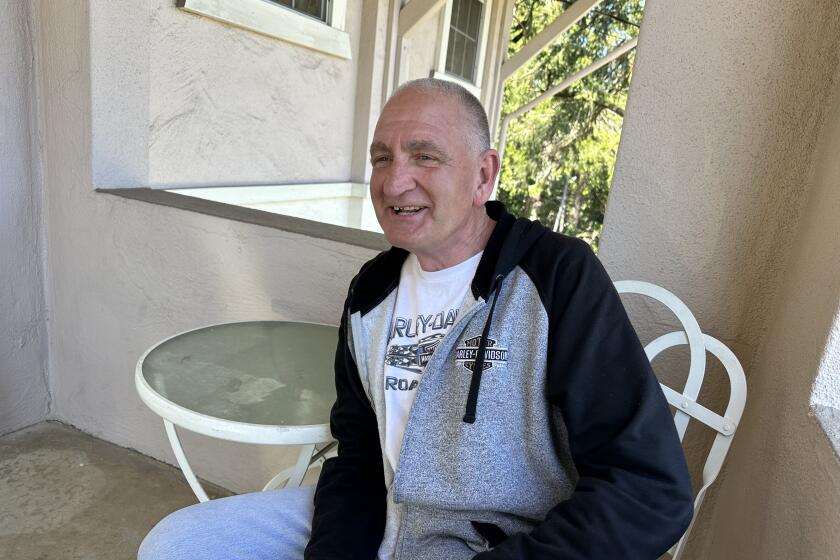Malibu Sewer Victory May Be Short-Lived : Politics: Several supervisors threatened to delay cityhood vote if county-backed sewer plan wasn’t approved.
In approving a sharply reduced regional sewer plan for Malibu, the California Coastal Commission gave many Malibu residents reason to celebrate this week.
But with the issue of sewers and cityhood for the seaside community inextricably linked, their celebration may be short-lived, depending on the next move of Los Angeles County officials.
Several supervisors, including Deane Dana, whose district includes Malibu, had indicated that they could further delay setting the date for a long-awaited cityhood election unless the Coastal Commission approved a sewer plan to the county’s liking.
The commission, however, clearly did not oblige.
The panel approved a plan that cuts by half the capacity of the system proposed by the county to serve commercial users and directed that estimates of the capacity needed for residential use also be trimmed to reflect water conservation measures.
The vote was 9 to 1, with Commissioner Madelyn Glickfeld, who lives in Malibu, disqualifying herself.
Jubilant opponents predicted that the plan will result in a sewer system 25% to 40% smaller overall than the one the county had wanted.
And on a day when things were going their way, longtime foes of the county’s plans also cheered the panel’s decision to remove nearly half of Pepperdine University’s sprawling campus from the sewer assessment district.
The decision affecting Pepperdine--which has long favored the county’s sewer plans--could weigh heavily in any future attempt to expand the as-yet unbuilt system, since removing a large part of the campus greatly reduces the university’s voting strength within the district.
“It’s a great victory, and we are extremely pleased,” said Sara Wan, a member of the 2,000-strong Malibu Township Council.
The decision disappointed county officials, who had scrambled to come up with a revised plan after the Coastal Commission in September rejected a previous $43-million sewer plan as oversized.
In recent weeks, the county even hired two outside consultants to help push its argument for a larger sewer system to the Coastal Commission’s planning staff.
“We will have to go back and look at what the commission did, and see if we can live with it,” Harry Stone, the county’s deputy director of public works, said after Tuesday’s hearing.
Meanwhile, a lawyer for the county indicated that the county’s struggle to implement a sewer system to its liking may not be over, despite the panel’s action.
“The county may choose to accept what the commission has done, or, if it concludes that for whatever reason it doesn’t want to, we’ve got to resubmit (a plan) and try to persuade the commission to adopt something different,” said James Colbert, an attorney who represented the county at Tuesday’s hearing.
But neither he nor Stone would speculate on how the decision might affect the prospects of a cityhood election occuring soon.
“That’s something I just couldn’t say right now,” said Stone, who last week said that public works officials “would have great difficulty” recommending to the supervisors that they set an election date if the commission approved a downscaled plan.
Cityhood supporters were angered last month after the supervisors put off setting an election date. By law, the supervisors have 60 days from last month’s hearing, or until late December, to set an election date, making it likely that, even with the delay, the election will be held in April.
The supervisors are to consider the matter again Nov. 21.
Cityhood supporters, many of whom have long opposed the county’s sewer plans as a recipe for widespread development, see incorporation as their best chance to wrest control of the sewer system from the county.
As part of the Local Agency Formation Commission’s approval of Malibu’s cityhood bid earlier this year, the county is to retain jurisdiction of any sewer system for up to 10 years after Malibu incorporates.
However, county officials, fearing that a newly elected Malibu government will mount a legal challenge to that provision, want to make sure that a sewer that they consider adequate is under way before Malibu residents vote on cityhood.
On Tuesday, representatives of the Malibu Committee for Incorporation asked the commissioners to postpone approving any kind of sewer plan until after a cityhood election.
“Mr. Dana and the Board of Supervisors can’t hold us hostage forever,” said Graham Ritchie, an attorney for the group. “There’s a law that they have to give us an election within 60 days or the courts will.”
County officials have long argued that a sewer system is needed in Malibu based on staff studies that, they say, document a significant health hazard because of discharges from malfunctioning septic tanks.
These findings, by the Department of Health Services, led the supervisors in January to approve a sewer system over the outcry of hundreds of Malibu residents, who say the county’s real aim is to develop the rural coastline.
At Tuesday’s hearing, John B. Murdock, an attorney for the Malibu Township Council, attacked the county’s claims of a health hazard as phony, accusing county officials of grossly overstating claims of sewage pollution.
“The figures in their 1985 health study proved to be fictitious, not just wrong,” he said. “It is a slander of a community. Malibu is not polluting the ocean.”
The decision to remove a big chunk of Pepperdine’s campus from the sewer district could be crucial to opponents of any attempt to expand the sewer system, once it is installed.
To mount a majority protest to overturn a sewer plan requires signatures of owners of more than 50% of the property in an assessment district. Critics accused the county of gerrymandering the district by including Pepperdine and other major landowners known to favor the county’s sewer plan.
Although Pepperdine’s long-range development plans call for only 311 acres of the sprawling campus to be developed, the county assessed all 785 acres owned by the university, which meant that Pepperdine made up 41% of the entire sewer district.
The removal of nearly half the campus from the district leaves the university with less than 20% of the district’s voting strength.
More to Read
Start your day right
Sign up for Essential California for news, features and recommendations from the L.A. Times and beyond in your inbox six days a week.
You may occasionally receive promotional content from the Los Angeles Times.






